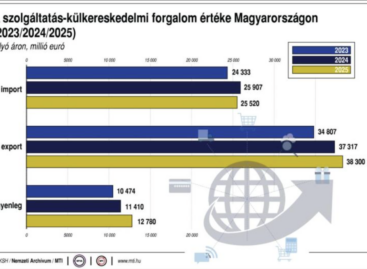Retailers should prepare for a low-key holiday season
This year, customers around the world can spend less during the holidays, according to EY’s international survey of 21,000 people. In order to reduce costs and waste, they will save not only on the number of gifts, but also on the amount of food.

Traders are also preparing for a more modest season
Almost everyone in the world is worried about the state of the economy (92%) and their own finances (87%), which also affects their Christmas shopping plans. Nine out of ten respondents (89%) would spend the same amount or less on their family during the holidays this year, and most of them (41%) will also give gifts to their friends more modestly. A third of customers (37%) will prepare smaller meals to avoid waste, and 44% will decorate their homes with more restrained lighting and decorations.
“The era of impulse purchases is definitely over – at least temporarily. Retailers must prepare for the holidays with well-thought-out offers and consciously designed discounts in order to maintain their competitiveness”
– emphasized László Roland, head of EY’s business consulting department. The specialist added that companies that already operate customer relationship management systems that can be used to send personalized offers to their customers have a significant advantage.
Related news
MKIK seeks partnerships with businesses and government
🎧 Hallgasd a cikket: Lejátszás Szünet Folytatás Leállítás Nyelv: Auto…
Read more >Eurozone economic growth accelerated in February
🎧 Hallgasd a cikket: Lejátszás Szünet Folytatás Leállítás Nyelv: Auto…
Read more >KSH: The foreign trade surplus in services was 3.1 billion euros in the fourth quarter of last year
🎧 Hallgasd a cikket: Lejátszás Szünet Folytatás Leállítás Nyelv: Auto…
Read more >Related news
KSH: retail turnover in January exceeded the same period of the previous year by 3.5 percent and the previous month by 0.5 percent
🎧 Hallgasd a cikket: Lejátszás Szünet Folytatás Leállítás Nyelv: Auto…
Read more >A magyar csapat március 15-én lép színpadra a Bocuse d’Or Európai Válogatóján
🎧 Hallgasd a cikket: Lejátszás Szünet Folytatás Leállítás Nyelv: Auto…
Read more >REGIO Játék: 25.4 billion forints in sales and international opening
🎧 Hallgasd a cikket: Lejátszás Szünet Folytatás Leállítás Nyelv: Auto…
Read more >








